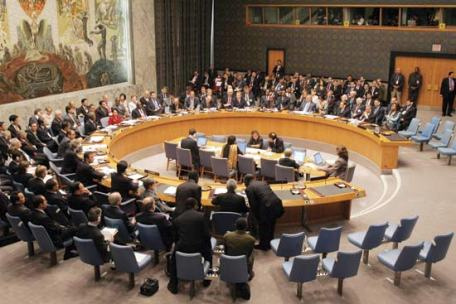What is the World Doing to Syria?

After the series of operations conducted by the Syrian army in different cities of this country and its widespread killing of the opposition, the international community has quickly reacted. We witnessed the same situation in Libya’s case as well. Muammar Gaddafi’s brutal actions prompted an international community reaction and resulted in a resolution from the Security Council. It was the first time that the Security Council conducted a military intervention because of human right issues.
Thus Bashar Asad has prompted international rage. The result of which is the reaction of the Security Council to his brutal conduct and the involvement of the international Criminal Court in regards to this case. This court is not held for normal individuals, and specifically works on crimes committed by leaders, presidents, military leaders and in general those who have political immunity.
One of the manifestations of a crime against humanity is the repeated and systematic violation of human rights. In other words, if human rights violations occur in a country on a repeated and systematic basis at the level of arrests and harassment, it is still considered as crime against humanity. Another manifestation of a crime against humanity is genocide, where leaders of countries order mass killings. In the cases of Libya, Syria and prior to them during Saddam’s era in Iraq, this was the implemented scenario. Therefore Bashar Asad has entered a dangerous zone after his mass killings last week.
Currently the US, the European Union, Turkey, and even Russia are all condemning Asad for his conduct and asking him to stop the killing of his people. These developments could both become a pretext for military intervention in Syria and a case for Asad’s crimes against humanity. Even though it is unprecedented to invade a country in order to arrest its leader, this does not mean that it could not happen. If it does happen, Bashar Asad and his generals will not be able to resist the united international community.
Therefore, I believe the Syria issue has become serious. When the leaders of the EU and the US announce that Bashar Asad has lost his legitimacy and has to go, it means that all other reactions are in the same line as them. The private sector, companies, financial institutes, banks, insurance companies and others will all join this side and move accordingly.
Based on what was announced, UN human rights representatives will go to Syria to investigate and document all the crimes committed. When these crimes are documented, Bashar Asad has to respond to them. After that, the report will be sent to the Human Rights Council and later the Security Council. In regards to crimes against humanity, the International Criminal Court will do its job and the next steps will be the identification of criminals and determining their crimes. Then their names will be announced to the world, resulting in their arrests.
I believe different actions like economic and media pressures, political and economic sanctions, and finally the use of military intervention could be the order of conduct against Syria. It should be realized that when a person becomes infamous in the international community, whether right or wrong he will face many problems. We believe that a person should be rightfully infamous, so that action can be taken against him.
Therefore if Catherine Ashton, Vice-president and high representative of the EU for foreign affairs and security policy, announced that 20 Syrian officials and organizations will be added to this Union’s sanctions list, these actions will continue. The EU will confiscate their belongings and prevent them from travelling to other countries. The EU is also pursuing implementing the limitation on the export of crude oil to Syria, suspending investment aid from European banks, and blocking the belongings and limiting the free travel of those who support the policies implemented by Bashar Asad.
It appears that the international community is using all options in regards to Bashar Asad, and benefits from different options at each stage in order to reach its goal.

